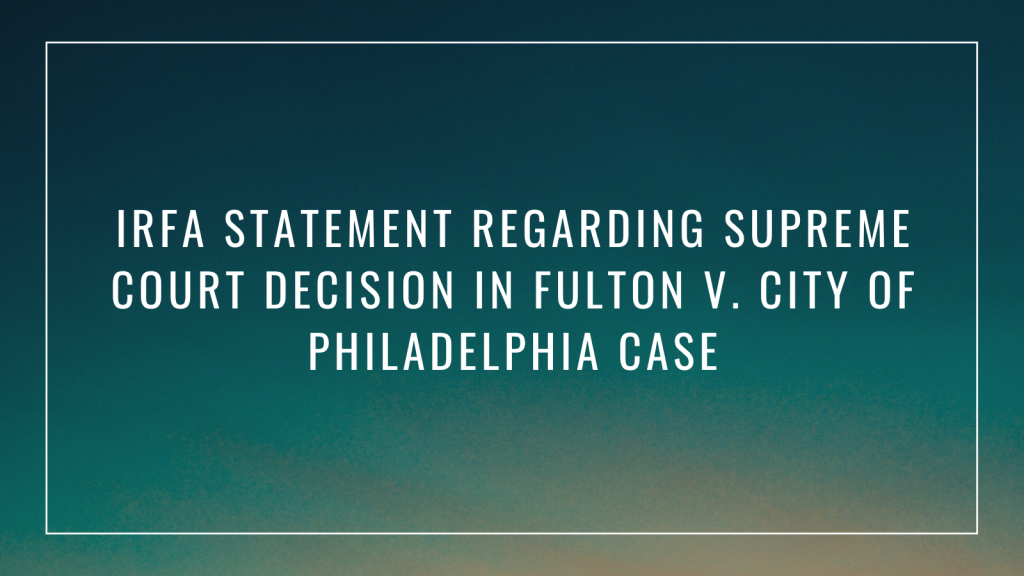
Statement of the Institutional Religious Freedom Alliance Regarding Supreme Court Decision in Fulton v. City of Philadelphia Case
Issued June 17, 2021
(June 17, 2021) – The U.S. Supreme Court today ruled unanimously that a faith-based foster care service provider that holds a traditional definition of marriage and family cannot be excluded from a contract with a city government agency. The Court’s decision upholds the important role that such faith-based providers have in providing these services for children and families. However, important issues remain, including uncertainties for LGBT citizens seeking to foster or adopt.
The Institutional Religious Freedom Alliance affirms the Court’s ruling, which upholds our longstanding commitment to the equal treatment of faith-based providers of foster and adoption services. However, the decision leaves unaddressed specifically how our nation ought to protect at the same time all of the rights involved in disputes like those underlying this case.
While the Court’s ruling is a welcome development for religious freedom, Congress still needs to act to resolve the many uncertainties that exist at the intersection of religious freedom and LGBT rights by passing the Fairness for All Act (H.R. 1440). Fairness for All outlines an innovative path forward for our diverse society, ensuring that all foster and adoption providers, regardless of their views on marriage and family, will receive equal treatment by the government, resulting in an increased number of loving families. Or, if it will not enact the Fairness for All Act, Congress could significantly amend pending legislation, The Equality Act (S.393) to provide the needed federal civil rights protections for LGBT individuals while still preserving the religious freedoms enshrined in the First Amendment.
The Institutional Religious Freedom Alliance is committed to protecting the rights of all, even as we work to safeguard religious freedoms that people of all faiths, as well as faith-based organizations, need in order to be able to continue contributing to the common good. Our government should ensure the civil rights and religious freedoms of all citizens and organizations.
Key among America’s foundational values is protection of the right for people and organizations to exercise their religion—to live life in accordance with their deeply held convictions. Many legal precedents have been established, and much legislation adopted, detailing what the First Amendment’s protection of the exercise of religion means in real life. These provisions must be maintained while other rights are clarified and expanded. Justice and equal treatment require nothing less.
The judicial system cannot provide the blanket protections that would help resolve these issues. The Supreme Court’s decision is the perfect moment for Congress to take up its legislative task and to adopt the Fairness for All Act.
